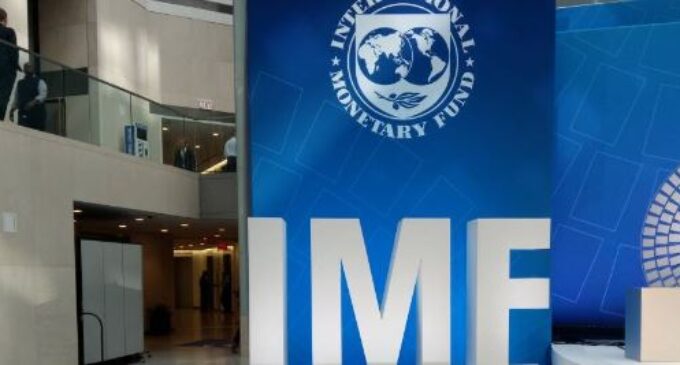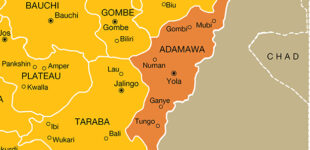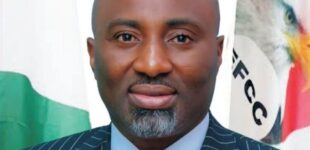IMF: CBN should step back as FX intermediator, allow banks to control dollar rates

The International Monetary Fund (IMF) has asked the Central Bank of Nigeria (CBN) to step back and allow commercial banks to determine dollar buy-sale rates to boost foreign capital flows to the economy.
IMF said this in its 2022 Article IV Consultation concluding statement after an official staff visit to Nigeria.
The Bretton Wood institution reiterated that a unified and market-clearing exchange rate remains critical to enhancing the confidence of foreign investors in the economy.
It added that administrative restrictions on current transactions fuel devaluation speculations and discourage capital inflow.
“Continued FX shortages, a stabilised exchange rate regime, rising inflation, limited debt servicing capacity, and administrative restrictions on current transactions fuel devaluation speculations,” IMF said.
“These factors hinder much-needed capital inflows, encourage outflows and constrain private sector investment.
“The mission reiterated its past recommendations to move towards a unified and market-clearing exchange rate by dismantling the various exchange rate windows at the CBN accompanied by clarity on exchange rate policy and supportive fiscal and monetary policies. In the medium term, the CBN should step back from its role as main FX intermediator, limiting interventions to smoothing market volatility and allowing banks to freely determine FX buy-sell rates.”
ADOPT TAX REFORMS
The IMF team advised Nigerian authorities to consider adjusting tax rates to levels comparable to the average in the Economic Community of West African States (ECOWAS) as compliance improves.
“This includes further increasing the VAT rate to 15 percent by 2027 in steps while streamlining numerous VAT exemptions based on systemic reviews, increasing excise rates on alcoholic and tobacco products while broadening the base, and rationalising tax incentives by streamlining tax expenditures based on comprehensive periodic reviews,” it added.
It also said the government should develop a compliance improvement programme and comprehensive customs modernisation programme, improve the effectiveness of the State Internal Revenue Service’s administration of the Pay-As-You-Earn (PAYE) system, and strengthen inter-agency coordination and data sharing.
It welcomed the steady implementation of the tax automation system (TaxPro Max) by the Federal Inland Revenue Service (FIRS) and recommended stepping up efforts to further expand coverage under a well-designed roadmap and strengthen taxpayer segmentation centering on the Large Taxpayer Offices (LTOs).
REMOVE PETROL SUBSIDY PERMANENTLY
It also advised Nigeria to remove fuel subsidies and address oil theft as a major step to narrowing the fiscal gap. The fund advised that as a near-term priority, there is an urgent need to remove fuel subsidies fully and permanently, which disproportionately benefit the well-off, by mid-2023 as planned.
“The government should also prioritise addressing oil thefts and governance issues in the oil sector to restore production to pre-pandemic levels. Step up implementation of tax administration reforms,” it said.
CLOSER LOOK AT NNPC FINANCIALS
The fund called for a closer look at NNPC’s financials, the nature of write-offs in its books as well as fuel consumption figures to ensure fiscal transparency.
“Notwithstanding recent improvements, some gaps remain. While the authorities have published the annual financial reports of the Nigeria National Petroleum Corporation (NNPC) since 2019, uncertainties remain regarding the nature of tax write-offs and fuel consumption volumes,”. IMF said.
“The mission recommended a closer look at the nature of NNPC’s financial commitments to the government and the costing details of the fuel subsidy, including through a financial audit”.
The IMF also advised Nigeria to resolve weak smaller banks and proceed with the winding down of the Asset Management Corporation of Nigeria (AMCON) by end-2023.
















There are no comments at the moment, do you want to add one?
Write a comment